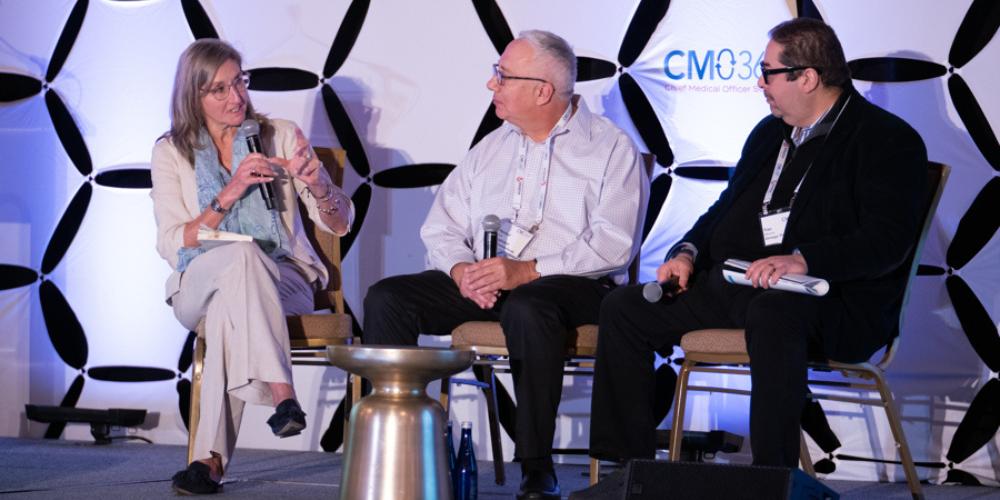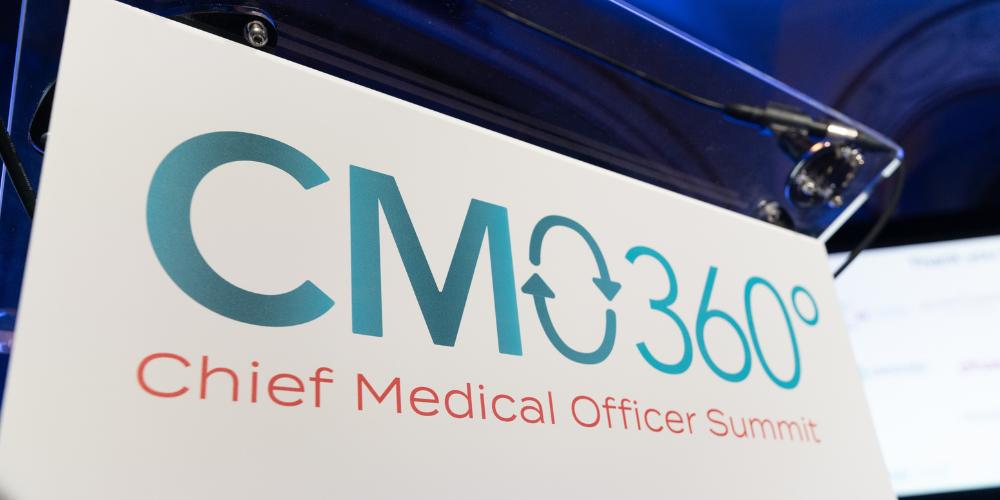
In the bustling corridors of modern businesses, particularly in the life sciences industry, a new force is making its presence known. Artificial Intelligence (AI), once confined to science fiction, is now a tangible reality reshaping how we work, communicate and innovate. As AI systems become more sophisticated, they promise to revolutionize industries, boost productivity and unlock new realms of possibility. But amidst this technological upheaval, a crucial question emerges: what happens to the heart and soul of our organizations—our company culture?
Imagine walking into a pharmaceutical company where AI assistants analyze vast genomic datasets, algorithms predict drug interactions with unprecedented accuracy and machine learning models optimize clinical trial designs. This isn't a far-off future; it's happening now. Life sciences companies across the globe are embracing AI to streamline operations, enhance decision making and drive innovation.
"According to a McKinsey global survey, 65% of respondents said that their organizations were regularly using generative AI in at least one business function, up from one-third the previous year."
Recent research underscores the transformative power of AI in the workplace. According to a McKinsey global survey, 65% of respondents said that their organizations were regularly using generative AI in at least one business function, up from one-third the previous year. In the life sciences sector, more than 90% of biopharma and medtech leaders realize the impact of generative AI on the industry, with 66% of companies using it to enhance their business operations. Yet, as AI's presence grows, so do concerns about its impact on the human elements that define company culture. Will the collaborative spirit of research teams be lost to the efficiency of machines? Can scientific intuition and creativity survive in a world driven by data and algorithms?
The integration of AI into the workplace is not just a technological challenge; it's a cultural balancing act. On one side, there's the promise of accelerated drug discovery and development. On the other hand, there is the risk of eroding the very qualities that make a research organization unique. Consider a mid-sized biotech firm that recently implemented an AI-powered drug discovery platform. While the tool dramatically improved the speed of identifying potential drug candidates, it also reduced the frequency of brainstorming sessions among researchers. The serendipitous discoveries that once emerged from casual lab discussions became less common, replaced by AI-generated hypotheses and automated experiments. This scenario underscores a pivotal challenge: companies must find ways to harness the power of AI while preserving the human touch that drives scientific breakthroughs and fosters a culture of innovation.
"Companies must find ways to harness the power of AI while preserving the human touch that drives scientific breakthroughs and fosters a culture of innovation."
To address the cultural risks associated with AI adoption, companies should take proactive steps, such as:
• Creating opportunities for meaningful human interactions - AI can streamline workflows, but human connections remain critical for collaboration and innovation. Organizations should incorporate opportunities for teamwork, such as brainstorming sessions or cross-functional meetings, to maintain a sense of community and personal interaction.
• Encouraging a balance between data-driven insights and human judgment - AI insights are valuable, but should complement, not replace, human decision-making. Encouraging teams to critically evaluate AI outputs and apply their expertise ensures decisions remain balanced, contextual and innovative.
• Regularly auditing AI systems for bias and including diverse perspectives - Bias in AI systems can lead to inequitable outcomes if left unchecked. Regular audits and the involvement of diverse teams in AI development help ensure fairness, inclusivity and reliability in its implementation.
The key to navigating this complex environment lies in viewing AI as an enhancement to human capabilities. Forward-thinking companies are finding ways to use AI to amplify their cultural strengths rather than diminish them. For instance, in the context of drug discovery and development, AI can accelerate the process of analyzing complex molecular structures, allowing researchers to focus on interpreting results and designing novel experiments. This approach not only improves efficiency, but also reinforces a culture of continuous learning and scientific exploration.
Leadership plays a crucial role in navigating this new landscape. Leaders must become adept at blending scientific expertise with technological savvy and emotional intelligence. They need to clearly communicate the company's AI strategy, addressing fears and uncertainties head-on. Transparency is key. Employees need to understand how AI will impact their roles and the overall direction of the company's research efforts. Leaders should emphasize that AI is a tool to augment human capabilities. This message can help alleviate fears of job displacement and foster a sense of excitement about the possibilities AI brings to scientific discovery.
The most successful companies will be those that find ways to create a synergy between human strengths and AI capabilities. This means redesigning roles and processes to leverage the best of both worlds. For instance, in clinical trials, AI can analyze vast amounts of patient data to identify optimal cohorts and predict potential outcomes, while human researchers can focus on designing innovative trial protocols and interpreting complex results. This not only improves efficiency, but also allows scientists to engage in more intellectually stimulating work that utilizes their unique human skills of creativity and critical thinking. An MIT working paper showed that ChatGPT raised productivity, decreased inequality between workers by helping employees with fewer specialized skills, and enhanced job satisfaction and self-efficacy. Workers completed tasks 40% faster and output quality improved by 18%. This demonstrates the potential for AI to make work more fulfilling when used appropriately.
"Leaders should emphasize that AI is a tool to augment human capabilities."
The integration of AI into company culture is already taking place. The key to success lies in how organizations approach this integration. As we've seen from examples across various industries, AI can provide invaluable insights into company culture, helping organizations identify strengths and areas for improvement. It can boost the way employees engage, improve the decisions they make and create more fulfilling work experiences for them.
However, the human element remains crucial. The warmth of personal interactions, the spark of creativity in face-to-face brainstorming sessions and the nuanced understanding that comes from human empathy cannot be replaced by AI. Instead, AI should be used to amplify these uniquely human qualities. In the end, the question isn't whether AI will affect your company culture, but how you'll use it to build a stronger, more vibrant organization.
As we move forward in this new era of AI-powered innovation, let's embrace AI not as a threat to our company cultures, but as a powerful tool to enhance them. By doing so, we can create organizations that are more innovative, more collaborative and better equipped to solve the world's most pressing challenges. The AI revolution is here and, with thoughtful implementation, it can help us build company cultures that are truly fit for the future of scientific discovery and beyond. The future belongs to those willing to blend together ingenuity alongside advanced capabilities offered through AI, creating workplaces which aren't simply efficient, but genuinely human.
In This Article









